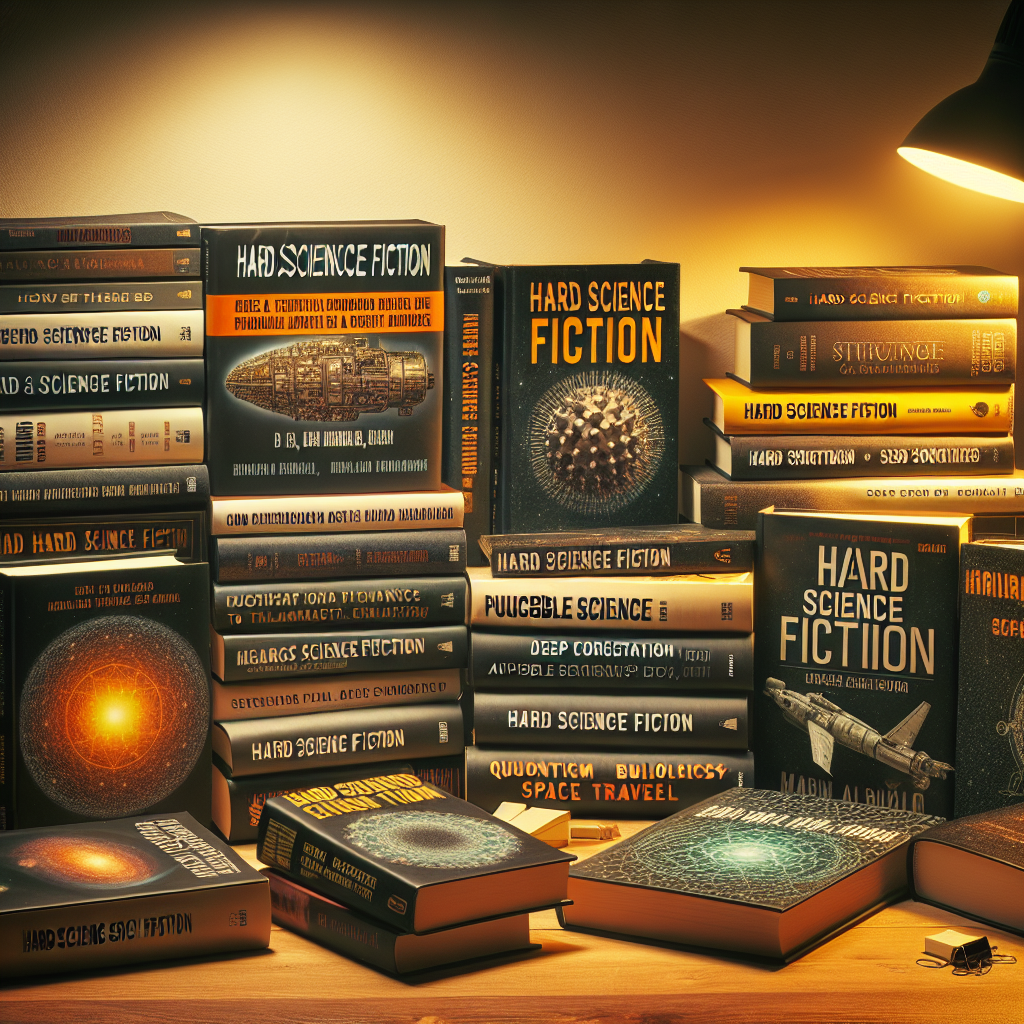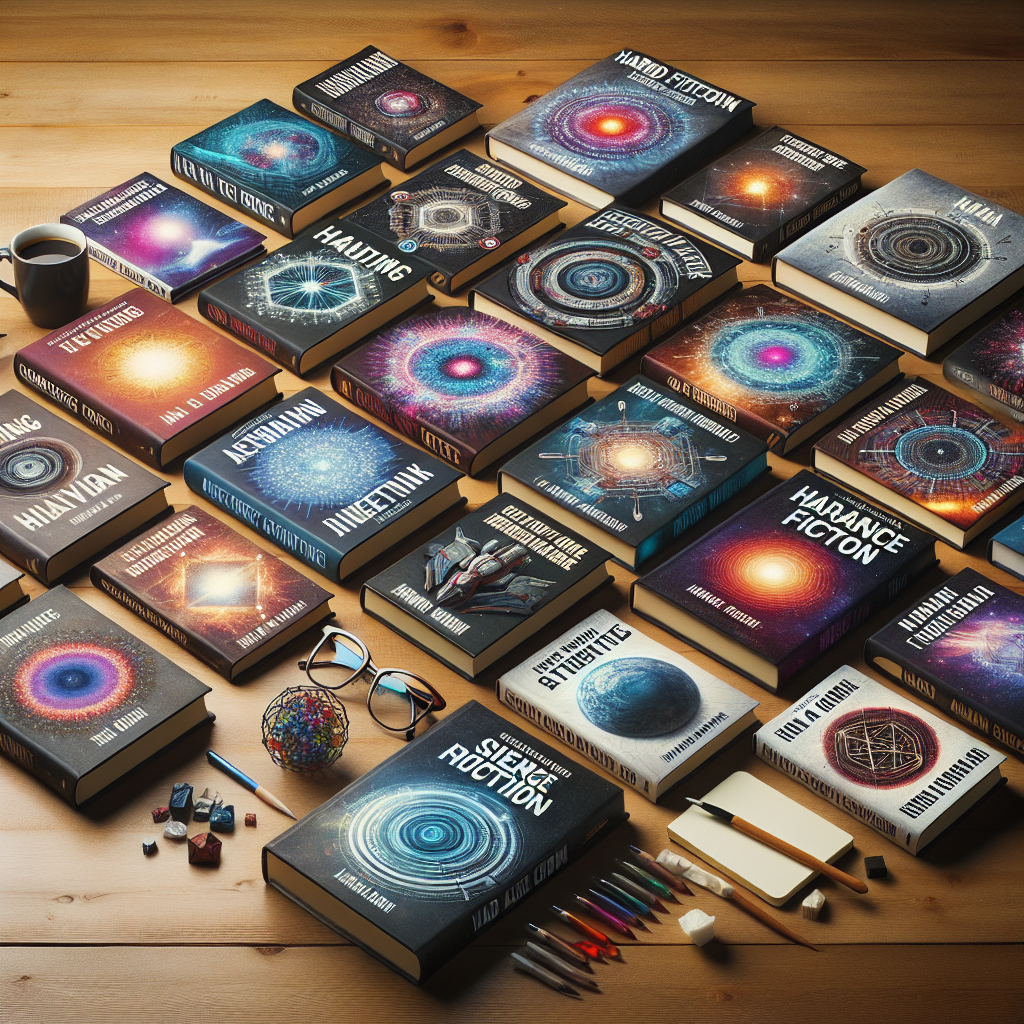As an Amazon Associate I earn from qualifying purchases.
The Best Hard Science Fiction Books: A Journey Through Realism in the Cosmos

Hard science fiction stands as a unique subgenre within the broader science fiction universe, distinguished by its rigorous adherence to scientific accuracy and logic. This genre captivates readers with its plausible extrapolations of current scientific theories and technologies, offering a glimpse into the potential futures of humanity and the universe. The best hard science fiction books not only entertain but also educate, challenging readers to expand their understanding of the possible. This article delves into the masterpieces of hard science fiction, exploring the works that have defined and continue to shape this intellectually stimulating genre.
Understanding Hard Science Fiction
Before diving into the list of must-read books, it's crucial to understand what sets hard science fiction apart from other subgenres. Hard science fiction emphasizes scientific accuracy, logic, and technical detail, making it a fascinating intersection between actual science and imaginative speculation. This genre often explores complex themes such as space exploration, time travel, quantum mechanics, and the impact of technological advancements on society. Through meticulously researched narratives, hard science fiction offers a vision of the future that could, theoretically, become reality.
Top Picks for Hard Science Fiction Enthusiasts
The following books are celebrated for their contribution to the hard science fiction genre, each offering a unique perspective on the future of humanity and the universe:
- The Martian by Andy Weir: A gripping tale of survival, “The Martian” tells the story of an astronaut stranded on Mars, relying on his scientific knowledge and ingenuity to survive. Weir's attention to detail and accurate portrayal of Martian conditions make this novel a standout in hard science fiction.
- Rendezvous with Rama by Arthur C. Clarke: This classic novel explores the arrival of an alien spacecraft in the solar system. Clarke's meticulous description of the spacecraft and the scientific principles behind its exploration exemplify the essence of hard science fiction.
- Seveneves by Neal Stephenson: An epic tale of survival and human ingenuity, “Seveneves” begins with the moon's sudden destruction and the ensuing efforts to preserve human civilization. Stephenson's detailed exploration of space habitats and orbital mechanics showcases the depth of research characteristic of the genre.
- The Expanse series by James S.A. Corey: This series offers a realistic vision of humanity's expansion into the solar system, with a focus on the political and social implications of space colonization. The scientific accuracy and detailed world-building of “The Expanse” have earned it a place among the best in hard science fiction.
- Blindsight by Peter Watts: A thought-provoking exploration of consciousness and first contact with alien life, “Blindsight” delves into the biological and psychological sciences to question the nature of sentience itself. Watts' novel is a prime example of hard science fiction's potential to challenge our understanding of reality.
Why These Books Stand Out
The novels listed above are not only exemplary for their scientific rigor but also for their ability to weave complex scientific concepts into compelling narratives. They stand out in the hard science fiction genre for several reasons:
- Scientific Accuracy: Each book is grounded in current scientific understanding, with authors going to great lengths to ensure the plausibility of their scenarios.
- Imaginative Speculation: Despite their grounding in reality, these novels excel in imaginative speculation, exploring the “what ifs” of science and technology.
- Engaging Storytelling: Beyond the science, these books tell captivating stories of human resilience, ingenuity, and exploration, making them accessible to a wide audience.
- Thought-Provoking Themes: They tackle complex themes, from the ethical implications of technological advancements to the existential questions of human existence, encouraging readers to think deeply about the future.
Impact on Science and Society
Hard science fiction does more than entertain; it inspires. Many scientists and engineers cite science fiction as a source of inspiration for their careers, demonstrating the genre's potential to influence real-world scientific advancements. By presenting scientifically plausible scenarios, hard science fiction encourages readers to contemplate the future of technology and its impact on society. It serves as a catalyst for innovation, pushing the boundaries of what is considered possible and inspiring the next generation of scientists and inventors.
Conclusion: The Enduring Legacy of Hard Science Fiction
The best hard science fiction books offer a unique blend of scientific accuracy and imaginative speculation, challenging readers to explore the boundaries of current scientific knowledge. Through detailed research and compelling storytelling, authors like Andy Weir, Arthur C. Clarke, Neal Stephenson, James S.A. Corey, and Peter Watts have contributed significantly to the genre, inspiring both readers and scientists alike. As we look to the future, hard science fiction will undoubtedly continue to play a crucial role in shaping our understanding of the universe and our place within it. Whether you're a science enthusiast or simply a lover of great stories, the hard science fiction genre has something to offer, inviting you on a journey through the cosmos that is as enlightening as it is entertaining.
Amazon and the Amazon logo are trademarks of Amazon.com, Inc, or its affiliates.






















































